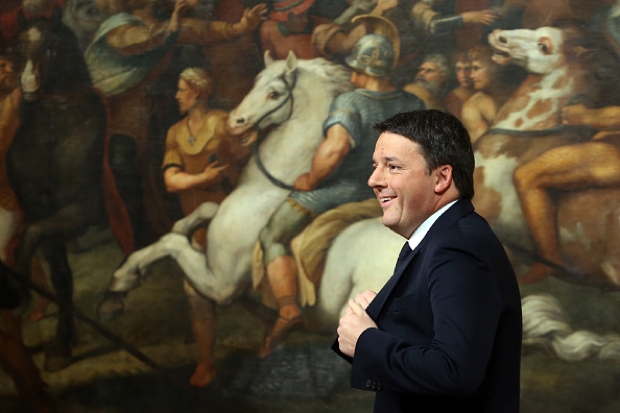Matteo Renzi has resigned from being Prime Minister of Italy but he has not resigned from the Democratic Party. He has not done a David Cameron or David Miliband and left public life. This means that he will be back next year, and it also means that he will act as kingmaker in the coming days. Right now, he will be working away behind the scenes to help organise the next coalition government that will soon be ushered in to pass the Budget law and to ensure the smooth passage of the banking bail out.
There is zero appetite among Democratic Party members or their junior coalition partners to call a general election. It is clearly in everyone’s self-interest to come to a consensus on a coalition cabinet so as to freeze out the insurgents. We can expect to see someone like Pier Carlo Padoan, the Minister of Economy and Finance, or Pietro Grasso, the President of the Senate, step in to reassure the markets. And tellingly, the banks which have been lined up to underwrite the bail out of the indebted Italian banks all met today and – perhaps contrary to the expectations – they have said that they have not yet decided to walk away from the bail-out deal.
So, in the short term, Italy’s problems appear manageable. The economy and the government will both limp on through 2017. No doubt at some point Renzi will return, and although Beppe Grillo and his Five Star Movement (M5S) have awarded themselves the victor’s laurels, not everyone agrees: M5S were part of an anti-establishment rainbow protest vote but they are still a million miles from a majority. Indeed, slightly counter-intuitively, morale is up among sections of the Democratic Party: they point out that even with everyone from the far left to the far right lining up against Renzi, he still won 40 percent of the vote. When Renzi’s popularity recovers next year and the voters are faced with the normal unappealing selection of electoral candidates rather than a yes/no referendum, Renzi will be an election winner once again.
But over the longer term, the big problems in Italy are only getting worse. The economy is shrinking. Debt is now 130 percent of GDP, an outrageous figure when coupled with a shrinking economy. Being a politician in Rome these days is a bit like sitting in a nice Trattoria, surrounded by a large group of office colleagues. You’ve just finished a long lunch but no one wants to ask for the bill because it is obvious from the carnage on the table that its going to be a whopper, and it is equally obvious that no one has any money to pay for it all. In such circumstances there is zero upside in being the person who asks for the bill, or tries to get people to empty their pockets. The only sensible thing to do is to continue to order bottles of limoncello and wait for the German restaurant owner to chuck everyone out.
Italy is unable to reform. No one can afford to expend the political capital necessary to take on the many and varied vested interests. In the old days, the Pope would have called for a jubilee, a once in a generation carnival of debt write-offs. Nowadays, the equivalent might be a currency devaluation. The problem is, of course, that right now, the Italians are using someone else’s currency.






Comments